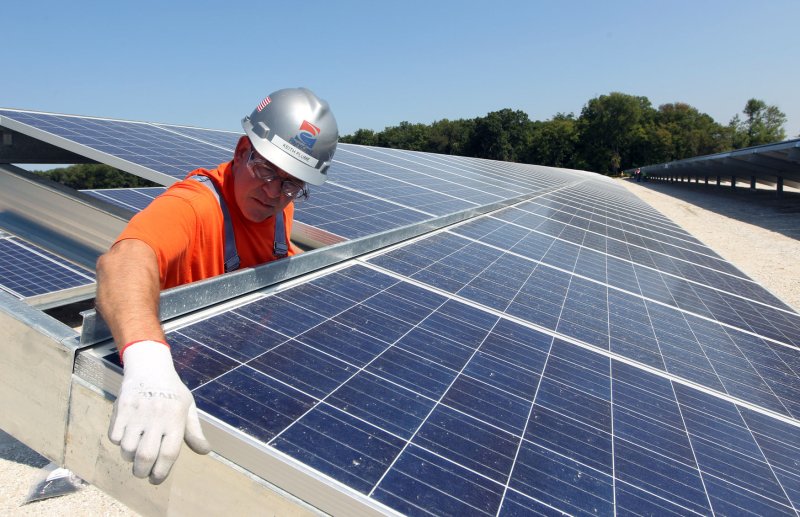Why is the UAE a hot spot for Russians dodging sanctions?
It's sunny and politically stable, there is little financial transparency and it's easy enough to invest in a business or property and get a residency visa in return.

In Dubai, a luxury villa comes with a residency visa
On its website, the Dubai-based lifestyle magazine Russian Emirates offers readers a selection of commonly asked questions. They include everyday queries about where to find Russian food in the United Arab Emirates, and whether there are Russian-speaking doctors there. But by far the most popular question on the Russian-language magazine is this one, with over 83,000 views: "Can I get UAE citizenship?"
Over the past two weeks — that is, since Russia invaded Ukraine and Western nations imposed sanctions as a result — the readership of the Russian Emirates website has almost doubled to nearly 300,000 views in a week.
That trend is likely to continue, experts say, as Russians look for ways to avoid sanctions and secure their wealth. Some are likely also trying to escape what they see as an increasingly perilous political situation at home.
One oil industry insider, who visited the emirate of Dubai this month, told DW about a palpable change in atmosphere there. "There's the feeling that this is an incredible game changer, in terms of the influx of capital to Dubai as a result of Russians exiting [their country] and looking for safe havens financially," the insider said.
Elsewhere, there have been reports of Russian oligarchs' private jets flying back and forth from Moscow to Dubai. A Ukrainian newspaper reported local intelligence agency suspicions that the oligarchs were ferrying private property to Dubai for safety.
Open source investigators, using maritime traffic websites, also spotted several superyachts moored in Dubai. Because the UAE hasn't imposed the same tough sanctions on Russia, the superyachts are safe there.
Invisible increases?
Despite its long-term security relationship with the US, the UAE has attempted to avoid taking a side in the Russia-Ukraine war and has not imposed sanctions.
As a result, Russian-speaking business consultants in Dubai have told international media there is a huge increase from inside Russia in requests for information.
"There is increasing concern that Dubai will indeed become an even greater hub for Russian oligarchs' money," Jodi Vittori, a professor at Georgetown University in Washington and expert on corruption, illicit finance and state fragility, confirmed.

Several EU governments have impounded superyachts belonging to Russian oligarchs
The flow of ill-gotten Russian gains has actually been washing through Dubai since the late 1990s, Vittori, who was previously assigned to NATO's counter-corruption task force, added.
But it's going to be hard for anybody to tell how much of an increase there might be now. "Because most of it won't be visible," Vittori explained.
This is because the UAE authorities don't actually collect the relevant information, Maira Martini, a researcher with Transparency International, pointed out.
Corruption investigators have mostly had to rely on leaked documents when it comes to working out who owns what in the UAE, Vittori explained.
Genuine improvements?
Thanks to increased scrutiny by organizations like the Financial Action Task Force, or FATF, a global money laundering watchdog, there have been some recent rule changes, Martini said.
Earlier this month, after a year of observation, the watchdog put the UAE on a so-called "gray list", which means "a jurisdiction under increased monitoring."
MEMBERS OF PUTIN'S INNER CIRCLE HIT BY WESTERN SANCTIONS
Roman Abramovich
Chelsea football club owner Roman Abramovich is one of the latest billionaires to be blacklisted. Last week, he put the club up for sale and promised to donate money from the proceeds to help war victims in Ukraine. But the UK government thwarted his plans by freezing his assets on March 10. In 2008, Abramovich's net worth peaked at $23.5 billion, making him Russia's richest man.
The UAE had come up with a number of new rules to better control potentially illicit financing, even though Martini and Vittori agreed they haven't actually done much about enforcing those rules.
"Now, if you start a company in the UAE you are finally going to be asked who is really behind it," Martini told DW.
Despite more rules about company ownership, it would still be easy to hide wealth in the UAE, Martini continued. For example, the UAE has 39 different company registries across its seven emirates. "How can that be an effective system?" Martini argued. "It's a mess."
There are also more than 40 of what are known as "free zones" in the UAE, mostly in Dubai, where foreigners can locate (or relocate) companies.

After Indians, Russians form the second biggest group of tourists in Dubai
"And with real estate or investment funds, nobody is going to ask you any questions," Martini said.
Buying property in the UAE is comparatively frictionless and offers investors a residency visa, without needing local sponsorship. Paperwork to buy an apartment or start a business is minimal and cash is king, investigators have found.
Investing in real estate worth around $272,000 (€185,000) gets the buyer a three-year UAE visa. Investing about $1.36 million (€1.18 million) buys a five-year visa. Ordinary, upper middle class Russians, looking to avoid their business being appropriated by their own government or the economic meltdown back home, might well have the funds to set up a safe haven here too.
The Organized Crime and Corruption Reporting Project, a global network of investigative reporters, runs a database that includes foreign property Russian politicians have declared under Russian law. In the UAE, only 62 properties — including garages, apartments and residential buildings — are registered.
Why the UAE?
Of course, the UAE is not the only place that wealthy individuals fleeing sanctions could hide money. There are 23 countries on FATF's grey list , including Pakistan, South Sudan, the Cayman Islands, Yemen and Morocco, among others. But some of these nations are now supporting efforts to cut off Russia economically, and there are further reasons why UAE remains attractive.
"It's a unique location," Vittori explained. "It's not a transit point like the Cayman Islands, it's more of a one-stop shop for illicit finance."
Dubai also has a lot of what Vittori calls "clean money." Many multi-national businesses operating in the Middle East base themselves here and operate legally.

There are fears that Russians will use Dubai to escape sanctions
"Nobody invests in 'dirty money' locations because everybody knows it's dirty there. It's too obvious," Vittori explained. "So it's the combination of clean and dirty that makes Dubai so attractive."
Dubai has also long been a popular visa-free holiday destination for Russians, attracting around 730,000 Russian tourists in 2019, before the pandemic curtailed travel. Around 100,000 Russian-speakers are thought to be living in the UAE currently, with about 40,000 from Russia and the rest from post-Soviet states.
The political situation is also advantageous. Each of the UAE's emirates is run by a monarchy, based on tribal authority. Human rights activists describe the emirates as authoritarian, with no real political opposition, and where civil society, freedom of speech and a free press are muzzled.
Secrecy, stability, speed
This means less scrutiny from journalists or activists, Vittori said, while at the same time there is comparative political stability.
"They might not care about stability at home but when it comes to where they keep their money, the kleptocrats and the corrupt care about law and order," Transparency International's Martini added.
She believes there are two other main reasons why the UAE is a great hiding place for ill-gotten gains.
Firstly, the secrecy around financial transactions and then secondly, the fact that the UAE "doesn't cooperate too much with other countries on these issues," she said.
The FATF reported that Dubai received about 300 requests for assistance from abroad between 2013 and 2018 but only acted on 89 of them.
"[UAE authorities] are very slow and they're definitely not proactive," Martini concluded. "If, for example, an individual physically moves there, it would be very unlikely they would be extradited. All of these qualities makes it very, very attractive to those wanting to avoid sanctions or hide wealth."
























